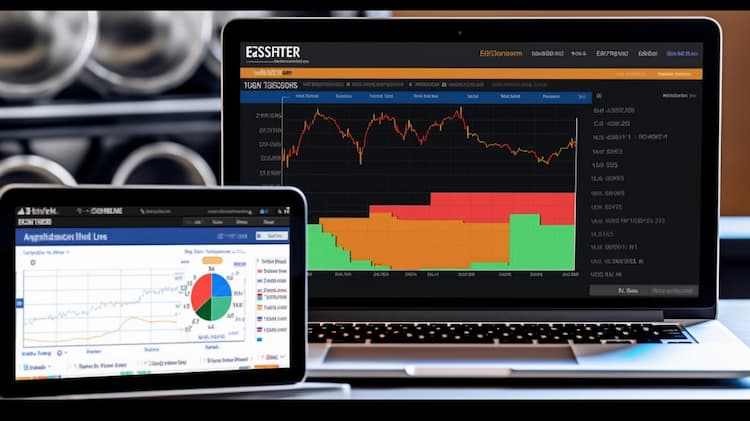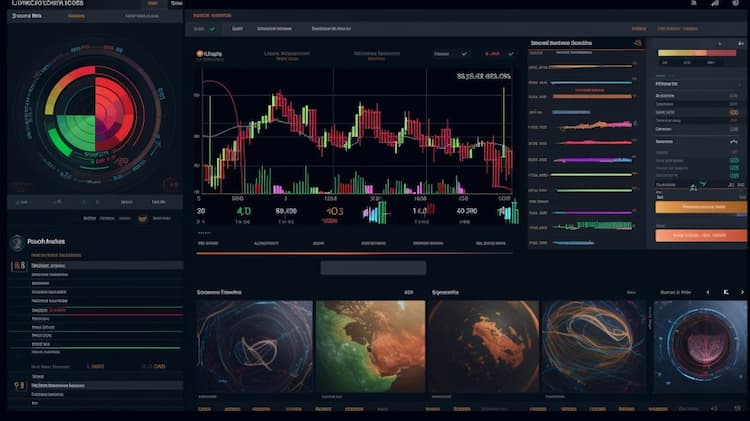
What are the best Energy ETFs to invest in?
Discovering the ideal Energy Exchange-Traded Funds (ETFs) can be a crucial step for investors seeking exposure to the energy sector. This article provides valuable insights into the top-performing Energy ETFs, exploring their potential for growth and diversification, and guiding readers towards making informed investment decisions in this dynamic and vital industry. ## Best Energy ETFs: A Comparative Analysis
When considering investing in the energy sector, exchange-traded funds (ETFs) offer a convenient and diversified way to gain exposure to this dynamic industry. One standout ETF in the energy sector is the Energy Select Sector SPDR Fund (XLE). XLE is one of the largest and most widely traded energy ETFs, providing investors with exposure to a broad range of energy companies, including oil and gas producers and integrated energy firms. The fund's holdings include well-known giants like Exxon Mobil and Chevron. XLE's performance is often benchmarked against the Energy Select Sector Index, making it a go-to choice for investors seeking overall market performance in the energy sector.
Comparing XLE to another popular energy ETF, the iShares Global Energy ETF (IXC), we can see some differences in their approaches. IXC takes a more global approach by including energy companies from around the world, providing diversification beyond the U.S.-based focus of XLE. Investors interested in tapping into international energy markets may find IXC to be a compelling choice.
Understanding the Role of Energy ETFs in Your Portfolio
Energy ETFs can play a crucial role in a well-diversified investment portfolio. These funds offer exposure to a sector that is vital to the global economy and can provide a hedge against inflation. Additionally, energy ETFs can be seen as a way to potentially benefit from changes in energy prices, geopolitical events, and shifts in global energy demand.
As with any investment, it's important to carefully consider your risk tolerance, investment goals, and time horizon before investing in energy ETFs. Investors with a long-term perspective may choose to allocate a portion of their portfolio to energy ETFs, understanding the potential for volatility and market fluctuations in the sector.
 XLE overlap What are the best Energy ETFs to invest in?
XLE overlap What are the best Energy ETFs to invest in?
Factors to Consider When Choosing Energy ETFs
When evaluating energy ETFs, there are several factors to keep in mind:
Expense Ratio: Consider the expense ratio of the ETF, as lower fees can significantly impact your overall returns over time.
Holdings: Examine the ETF's holdings to understand the specific companies and sectors it invests in. Some ETFs may focus on specific subsectors, like renewable energy or oil exploration.
Performance: Review the historical performance of the ETF to assess how it has performed in various market conditions.
Risk: Understand the risk associated with investing in energy ETFs, as the sector can be sensitive to economic, geopolitical, and environmental factors.
Pros and Cons of Energy ETFs
Like any investment, energy ETFs have their advantages and disadvantages. Here are some to consider:
Pros:
Diversification: ETFs offer exposure to a basket of energy-related companies, reducing the risk of investing in a single stock.
Liquidity: ETFs trade on exchanges like stocks, providing ease of buying and selling.
Lower Minimum Investment: ETFs often have lower minimum investment requirements compared to mutual funds or individual stocks.
Cons:
Volatility: The energy sector can be highly volatile, which may lead to significant fluctuations in the value of the ETF.
Concentration Risk: Some energy ETFs may be heavily concentrated in a few large companies, increasing exposure to those specific stocks.
Market Dependency: Energy ETFs' performance is heavily influenced by the overall market sentiment towards the energy sector.
Conclusion
Investing in energy ETFs can be a viable strategy for gaining exposure to the energy sector and potentially benefiting from its growth and development. However, it is essential to conduct thorough research, understand the risks involved, and align your investments with your financial goals and risk tolerance.
Disclaimer: This article is for informational purposes only and does not constitute investment advice. It does not provide any investment advisory services. Please consult with a professional financial advisor before making any investment decisions.
Sources:
XLE ETF issuer
XLE ETF official page
FAQ
What are Energy ETFs?
Energy ETFs are exchange-traded funds that focus on companies operating in the energy sector, including oil, gas, renewable energy, and related industries.
What factors should I consider when choosing Energy ETFs?
When selecting Energy ETFs, you may want to consider factors such as the fund's expense ratio, tracking index, holdings diversification, performance history, liquidity, and the investment strategy (e.g., focused on specific sub-sectors or broad energy exposure).
Can you recommend some popular Energy ETFs?
Some popular Energy ETFs include the Energy Select Sector SPDR Fund (XLE), Vanguard Energy ETF (VDE), iShares Global Clean Energy ETF (ICLN), Invesco Solar ETF (TAN), and SPDR S&P Oil & Gas Exploration & Production ETF (XOP).
Are there any ETFs focused specifically on renewable energy?
Yes, there are ETFs that specifically target renewable energy companies. Examples include the iShares Global Clean Energy ETF (ICLN), Invesco Solar ETF (TAN), and First Trust NASDAQ Clean Edge Green Energy Index Fund (QCLN).
What are the advantages of investing in Energy ETFs?
Investing in Energy ETFs allows for broad exposure to the energy sector without having to select individual stocks. They provide diversification, ease of trading on the stock market, and the potential to benefit from the performance of the overall energy industry.







